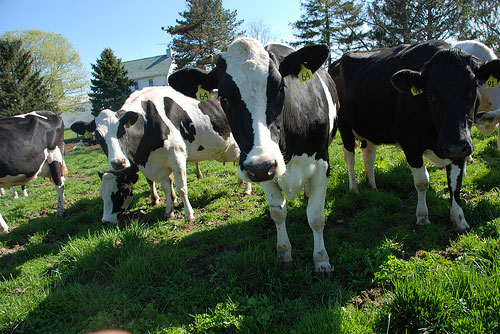The farmer turned waste products into export products
After a period of research, the production facility of Mr. Ho Sau's family, an old farmer in Tay Hoa commune, Trang Bom district, Dong Nai province, has successfully produced dairy feed for export to the market. world.
This type of food is produced by using raw materials from agricultural waste, but so far, post-harvest farmers often throw away such as corn stalks, bean pods, bagasse.
Currently, on average, Ho Sau's production facility exports over 3,000 tons of dairy cattle to Japan and South Korea for 115 USD / ton.

Earlier, this agile farmer realized that after every crop, farmers usually harvested only tubers, fruits to serve their lives and abandoned the roots and leaves of many plants. Meanwhile, they are the food for dairy cows but there is no long-term preservation.
From this reality, Ho Sau came up with the idea of making a food processing machine for dairy cows from agricultural waste. He purchased agricultural waste and then sorted, then fermented it with clean green technology to preserve it for a long time and still ensure enough nutrients for cows. These products are popular not only in the domestic market but also in overseas markets.
Many partners from South Korea come to meet Mr. Ho Sau and order food for dairy cows in large quantities, however, due to the factory's ability to produce only 100 tons / day, many orders cannot be made. show.
Mr. Ho Sau shared: "I am planning to expand the existing production facilities and put in some local branches with abundant raw materials. My family's production facilities are more attractive now. 200 employees (mainly ethnic Cho Ro) In the future, expanding production beyond the purpose of economic development of the family, I also want to create more jobs for people in the region " .
In addition to turning agricultural waste into export products, over the past years, Ho Sau farmer has been nicknamed 'king noodle' (cassava) by the people in the Southeast. Currently, he is hiring more than 100ha of cassava varieties such as KM94, KM140 . with an average yield of 40 tons / ha.
This time, he is researching to commercialize some new cassava varieties with high productivity and quality.
- Tips to distinguish Vietnamese shoes for export
- Green fuel from corn waste
- Products from waste cooking oil appear in Vietnam
- Successfully created 5 microbial products for environmental treatment
- Machine farmers will work in the field
- Turn the bamboo into an export bike frame
- America has found a way to turn plastic waste into cosmetics
- Big break: Recyclable plastic waste will be turned into super clean electricity
- 99.99% of plastic garbage on the sea turned out to be deep in the ocean without us knowing
- By 2030: The world will be flooded with plastic waste because China prohibits the import of garbage
- He turned garbage into gas
- Motorcycles run on animal waste
 'Barefoot engineer' invents a pipeless pump
'Barefoot engineer' invents a pipeless pump Process of handling dead pigs due to disease
Process of handling dead pigs due to disease Radiometer
Radiometer Warp Engine: Technology brings us closer to the speed of light
Warp Engine: Technology brings us closer to the speed of light